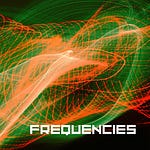The Birth of a Groove
Every song has its story, and "Time to Go" began with an experiment. I had just gotten my hands on UVI's Shade, a VST that promised to bring new dimensions to rhythm creation. Little did I know it would become the backbone of this track's distinctive groove.
Building Layers of Rhythm
It started with Shade's intuitive interface, which allowed me to craft rhythmic patterns that felt both organic and electronic. But the real transformation came when I introduced Kilohearts' Trance Gate into the mix.
This combination created something unexpected - while Shade handled the primary groove, Trance Gate added a pulsating layer of movement to the vocals and main melodic elements.
The result was a dynamic interplay between different rhythmic elements that seemed to dance around each other.
Technical Breakdown
For those interested in the technical side, here's what made this combination work:
Shade's pattern generator created the foundational groove for the bass and some keyboards, with its unique modulation capabilities adding subtle variations that kept the rhythm feeling alive
Trance Gate was set to a complementary pattern that enhanced rather than competed with Shade's output
The vocal and main solo processing through Trance Gate created a rhythmic counterpoint that added depth to the overall mix
The Final Result
What started as a simple experiment evolved into a track where technology and musicality merged. The interplay between these two VSTs created a rhythmic landscape that's both modern and engaging.
Sometimes the best musical discoveries come from being willing to experiment with new tools. In this case, Shade and Trance Gate proved to be the perfect partners in rhythmic crime.
🎵 Ready to experience "Time to Go"? Listen now on your preferred music platform:
https://ditto.fm/time-to-go-maestro-billy
All the best,
Billy.














